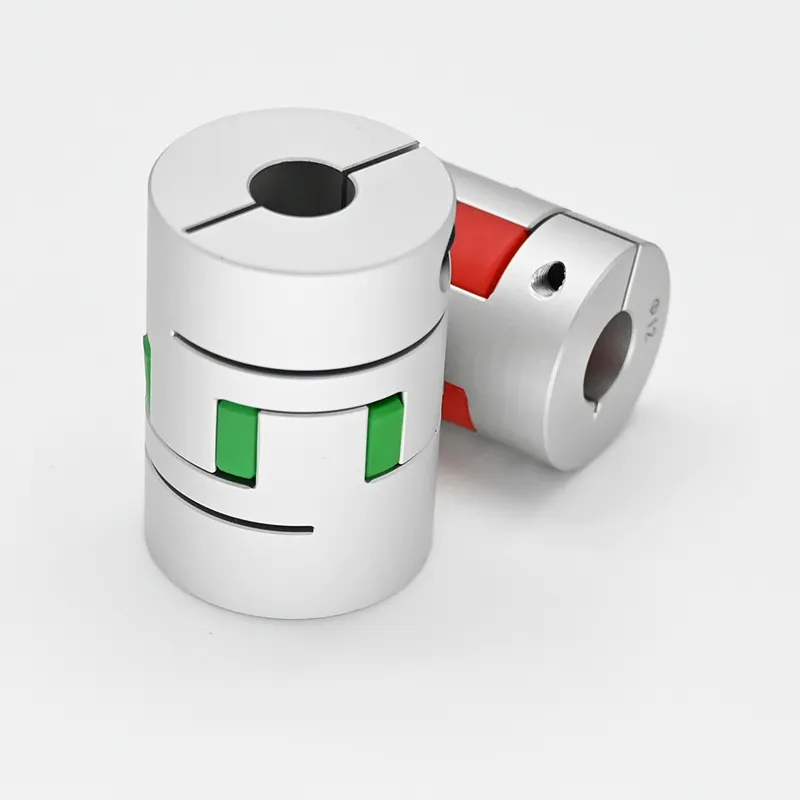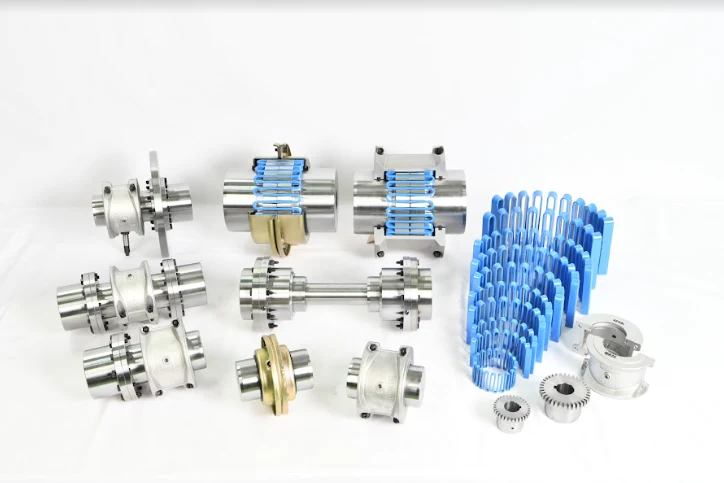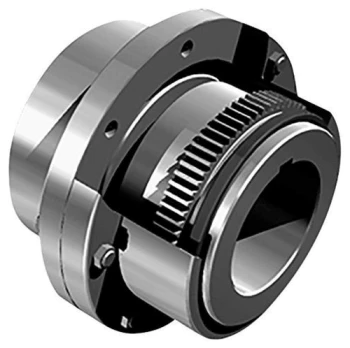Product Description
About Us
UP GOLD Automation Technology Co., LTD., independent brand, NYZ and UP. The main products are linear guide rail, slider, ball screw, linear optical shaft, linear bearing, machine tool spindle special P4 high precision bearings and accessories, with advanced production equipment and testing instruments to ensure the accuracy of each product. Precision products will provide higher value to the equipment. The company promises to sell each product, warranty period of 24 months, 24 hours after-sales service. Provide professional OEM cooperation model. At the same time, the company agents international first-line brands HIWIN, TBI, NSK,THK. Sufficient resources to ensure every customer needs.
Our Advantages
*Two-year warranty, replace instead of repair.
*12 Months Warranty
*Fast Delivery
*24 hours on line service
*Professional Team
Product Description
Couplings are the most commonly used connecting components in shaft transmission of mechanical products. Its function is to connect 2 axes to rotate together to transmit torque and motion, compensate for the relative displacement of the 2 connected axes, and improve the transmission dynamics of the system. Its application range covers many fields of the national economy, and it is a universal basic component with many varieties and large usage. With the advancement of science and technology and the development of production, the types of mechanical products are increasing day by day, and the requirements for their performance are also increasing. In order to adapt to the needs of various working conditions, couplings with various characteristics are required to achieve the expected use effects.
| Product Name | Coupling |
| Model Number | GXC-32×32-14×12 |
| Size | 32×32-14×12 |
| Feature |
1.High torque rigidity 2.High allowable torque 3.Lightweight and extremely small moment of inertia 4.No maintenance required 5.Oil and chemical resistance |
| Precision | High Precision |
| Material | Aluminum alloy |
| Delivery Time | 1) 1-5 Workdays for Samples or in Stock 2) 10-30 Working Days for Ordering |
Customer Comment
Packaging and Logistics
Commercial packaging
Plastic bag + individual packing+ Carton+ Pallet
Mode of transportation
FAQ
Q: What is the producing process?
A: Production process including raw material cutting, machine processing,grinding, accessories cleaning, assemble, cleaning, oil coating,cover pressing, testing, package.
Q: How to control the products quality?
A: Combining advanced equipment and strict management, we provide high standard and quality bearings for our customers all over the world.
Q: What is the transportation?
A: If small quantity, we suggest to send by express, such as DHL, UPS,TNT FEDEX. If large amount, by air or sea shipping.
Q: How about the shipping charge?
A: We will be free of domestic shipping charge from your freight forwarder in China.
Q: Can you provide OEM service?
A: Yes, we provide OEM service. Which means size, quantity, design,packing solution, etc will depend on your requests; and your logo will be customized on our products.
Q: Could you tell me the delivery time of your goods?
A: Generally it is 3-5 days if the goods are in stock. or it is 15-20 days if the goods are not in stock, it is according to the quantity.
Q: What about the packaging of your products?
A: Normally we use standard commercial package, we also have our own brand packing or customized package as per customers’ requests.
/* January 22, 2571 19:08:37 */!function(){function s(e,r){var a,o={};try{e&&e.split(“,”).forEach(function(e,t){e&&(a=e.match(/(.*?):(.*)$/))&&1

Real-World Examples of Successful Industrial Coupling Applications
Industrial couplings are essential components in various machinery and equipment across different industries. Their versatility, reliability, and ability to handle diverse operating conditions have led to numerous successful applications. Here are some real-world examples of successful industrial coupling applications:
- Pumps and Compressors: In the oil and gas industry, centrifugal pumps and compressors are used for fluid transportation and compression. Gear couplings are commonly employed in these applications due to their high torque capacity and ability to handle misalignment caused by thermal expansion. They ensure reliable power transmission and efficient operation of critical equipment in harsh environments.
- Steel Industry: The steel manufacturing process involves heavy machinery subjected to high torque and intermittent loads. Grid couplings are extensively used in steel rolling mills to connect the motors and rolling stands. Their torsional flexibility helps dampen shocks and vibrations during the rolling process, ensuring precision and reducing wear on the equipment.
- Pulp and Paper Processing: In the pulp and paper industry, large rotary drums and rolls require smooth and reliable power transmission. Disc couplings are commonly used in these applications due to their ability to handle misalignment and high speeds. They ensure precise control during paper manufacturing processes, resulting in consistent product quality.
- Power Generation: Power plants rely on large turbines, generators, and compressors that require efficient power transmission. Diaphragm couplings are well-suited for such high-power applications due to their torsional stiffness and ability to handle misalignment. They provide smooth torque transmission and help maintain precise alignment, enhancing the overall efficiency of power generation systems.
- Automotive Industry: The automotive industry utilizes various types of couplings for different applications. Universal joints are commonly used in drive shafts, enabling power transmission between the engine and wheels while allowing for movement due to suspension and steering. Additionally, elastomeric couplings are employed in engine-driven accessories, such as water pumps and power steering systems, to reduce vibrations and noise.
- Marine Propulsion: In marine applications, where space and weight are critical considerations, flexible couplings play a vital role in connecting the engine to the propeller shaft. These couplings accommodate misalignment caused by hull deflection and vibration, ensuring smooth and efficient propulsion while reducing stress on the drivetrain.
- Mining Equipment: Mining operations involve heavy-duty machinery operating in challenging conditions. Fluid couplings are commonly used in conveyors, crushers, and draglines to start and control the speed of large motors while providing overload protection. These couplings protect the machinery from excessive starting torque and shock loads, enhancing their longevity and reducing downtime.
These examples illustrate the widespread use and success of industrial couplings across diverse industries. The careful selection of the appropriate coupling type for each application ensures reliable power transmission, reduced downtime, and improved overall system performance.

Specific Couplings Designed for High-Temperature or Corrosive Environments
Yes, there are specific couplings designed to operate in high-temperature or corrosive environments. These specialized couplings are constructed using materials and designs that can withstand extreme conditions without compromising performance. Here are some examples of couplings tailored for such environments:
- High-Temperature Couplings: In applications where machinery operates at elevated temperatures, standard couplings made of conventional materials may not be suitable due to their limited thermal resistance. High-temperature couplings are engineered with materials like heat-resistant alloys or ceramics that can withstand extreme heat without degrading or losing their mechanical properties. These couplings are often used in industries such as steel manufacturing, glass production, and aerospace, where the equipment encounters high temperatures during normal operation.
- Corrosion-Resistant Couplings: Industries dealing with corrosive substances or harsh environments require couplings that can resist chemical attack and degradation. Corrosion-resistant couplings are typically made of stainless steel or other alloys with excellent corrosion resistance properties. These couplings protect against the effects of acids, alkaline solutions, and other corrosive elements, ensuring a longer service life and reliable operation. They are commonly used in chemical processing, petrochemical, and marine applications.
- Composite Couplings: Composite materials can offer a combination of properties that make them suitable for challenging environments. For instance, fiber-reinforced composite couplings can provide high strength, lightweight, and resistance to both high temperatures and corrosive substances. These couplings find applications in aerospace, automotive, and other industries where weight reduction and durability are crucial factors.
- Non-Metallic Couplings: Non-metallic couplings made of materials like plastic or reinforced polymers offer excellent resistance to corrosion, chemicals, and extreme temperatures. These couplings are often used in food and beverage processing, pharmaceuticals, and other industries where hygienic conditions and resistance to aggressive substances are essential.
It is crucial to select the appropriate coupling that matches the specific requirements of the operating environment. Using standard couplings in high-temperature or corrosive settings can lead to premature failure, increased maintenance, and safety risks. By opting for couplings designed explicitly for such conditions, industries can ensure the reliability and longevity of their equipment and maintain optimal performance even in the most challenging environments.

Types of Industrial Couplings Used in Engineering Applications
Industrial couplings are used in various engineering applications to connect rotating shafts and transmit torque between them. Each type of industrial coupling offers unique features and advantages, making them suitable for specific applications. Here are the different types of industrial couplings commonly used in engineering applications:
- 1. Diaphragm Couplings:
- 2. Gear Couplings:
- 3. Grid Couplings:
- 4. Jaw Couplings:
- 5. Disc Couplings:
- 6. Oldham Couplings:
- 7. Universal Joint Couplings:
Diaphragm couplings use a flexible diaphragm made of metal to transmit torque between the shafts. They are known for their ability to accommodate misalignments, including axial, angular, and parallel misalignments. Diaphragm couplings are used in applications where precise alignment between shafts is challenging or when there are potential misalignment variations during operation. They are commonly found in pumps, compressors, turbines, and high-speed machinery.
Gear couplings transmit torque through gear teeth that mesh together. They are designed for high torque capacity and are known for their durability and rigid construction. Gear couplings can handle high torque and are used in heavy-duty applications, such as steel mills, mining equipment, and large pumps.
Grid couplings use a grid of spring-like elements made of metal to transmit torque. The grid flexes to accommodate misalignments and shock loads, making them suitable for applications with varying loads or where shock absorption is required. Grid couplings are commonly used in pumps, conveyors, and compressors.
Jaw couplings use elastomeric elements to connect the shafts. They are known for their simplicity, ease of installation, and cost-effectiveness. Jaw couplings are suitable for small to medium-sized machinery, including pumps, fans, and small motors.
Disc couplings use thin metal discs to transmit torque between the shafts. They can handle misalignments and are often used in precision applications that require low backlash and high torsional stiffness. Disc couplings find applications in high-precision systems, such as machine tools and robotics.
Oldham couplings consist of three parts: two hubs and a middle block. The middle block allows axial and angular misalignment while maintaining constant velocity between the shafts. They are used in applications where low torque transmission and misalignment compensation are required.
Universal joint couplings are used to transmit torque between shafts at different angles. They are commonly used in automotive applications, such as drive shafts, as well as in industrial machinery with offset shafts.
Each type of industrial coupling has its own advantages and limitations, and the selection of the appropriate coupling depends on factors like torque requirements, misalignment conditions, operating environment, and the specific demands of the application. Engineers carefully consider these factors to choose the most suitable coupling for the particular engineering application, ensuring efficient and reliable power transmission while protecting the connected machinery from excessive stress and wear.


editor by CX 2024-04-08
